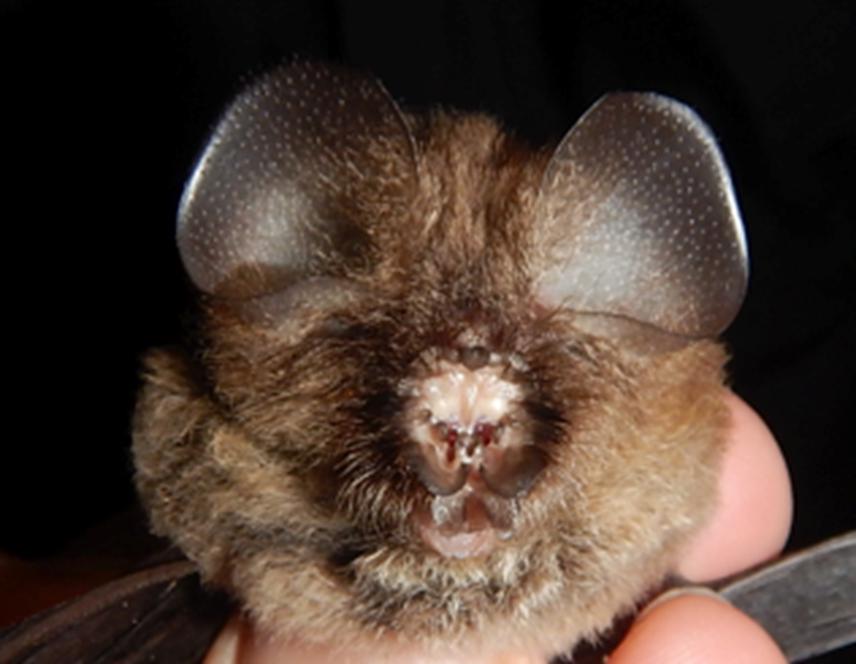Tu Vuong Tan
Other projects
18 Jan 2012
A Program for Conservation of Biodiversity and Endemism of Bats in Scattered Forests and Cave Complex in North Western, Vietnam
19 Jan 2017
Bats and their Pathogens in Urban and Surrounding Areas of Vietnam: Implications for Conservation and for Prevention of Emergence of Bat-Borne Zoonotic Diseases
The overall aim of this project is to establish a program for conservation of urban bat populations in Hanoi city, north Vietnam.

Coelops frithii.
Hanoi, the capital city of Vietnam, covers nearly 334,500 ha and comprises a mosaic of urban areas and impounded water bodies, together with rice paddy fields in outlying regions and protected forest areas. These habitats collectively support bat assemblages which play important ecosystem roles due to the ecological services they provide in plant pollination, seed dispersal and insect consumption. However, increasing urban development in and around Hanoi city may threaten components of local bat assemblages which possess narrow roosting and foraging requirements.
To ensure that these specialised components and overall urban bat diversity are maintained, urban planners and managers require conservation guidance based on sound ecological information. As little is known about the ecology of bat species in Hanoi, this project will conduct research to provide this information and thereby strengthen conservation management of urban bat populations.
This project will contribute to conservation in Hanoi city, and other urban areas in turn, by providing much needed information on the ecological requirements of urban bat species in Vietnam. More specifically, the project will investigate patterns in species composition, reproduction and nightly foraging activity in different habitat types and seasons to determine requirements for effective urban bat conservation.
Research findings will be disseminated to policy makers, researchers and the general public in the form of scholarly papers in local journals and articles in mainstream media. Information from the research will also used to develop awareness-raising materials for what we hope will become an established urban environmental awareness program. Finally, the experience gained from this pioneer project will provide a basis for follow-on conservation initiatives, together with a program for long-term monitoring of wildlife populations in Vietnamese urban areas.